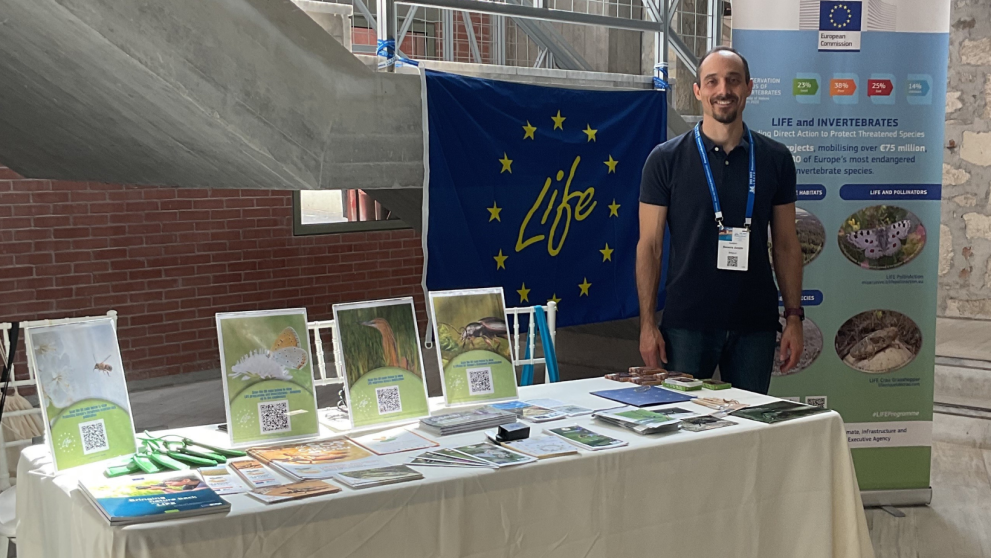
Some one thousand experts, including those from a dozen successful LIFE projects, attended the European Congress of Entomology (ECE23) on 16-20 October 2023. The Congress addressed a wide range of entomology-related topics, including the preservation of insects and their habitats across Europe.
LIFE projects’ presentations covered an array of challenges, such as pesticide management, biodiversity loss and the protection of endangered species and pollinators. They also highlighted their remarkable results and impact in the field.
“The congress has been an excellent forum to exchange information about the latest advances in the field, including biodiversity and conservation,” says Gustavo Becerra Jurado, LIFE’s representative at ECE23. “The LIFE Programme has significantly contributed to the lively and inspiring discussions by sharing the experience accumulated in the implementation of a number of selected projects. Supporting the active engagement of the scientific community, the LIFE Programme is assisting in tackling the main threats to insect diversity”.
LIFE projects present at the event varied in terms of target species and areas. LIFE PollinAction, LIFE Wild Bees and LIFE4POLLINATORS, for example, aim to improve the conservation of pollinator insects in the Mediterranean region and France.
“It’s a melting pot of science, networking, project presentations and very long days full of all kinds of information on insects,” says Manuela Giovanetti, one of the partners at LIFE4POLLINATORS, about the event. “We are looking to boost awareness among the public and stakeholders on pollinators’ lifestyles and their importance to farmers’ involvement in pilot activities. Having the support of a LIFE stand certainly helped us in disseminating about the project itself, but also in sharing experiences with colleagues that are equally involved in other LIFE projects. We felt as a community, supported by this European programme, in discovering and preserving nature.”
LIFE SOS Crau Grasshopper, another contributor to the Congress, focuses on the conservation of endangered Crau plain endemic species and their natural habitats. Similarly, fellow participants LIFE SPAN, LIFE BEETLES and LIFE Rosalia research and implement best practices for protecting endangered beetles, saproxylic species and their habitats while also raising awareness and sharing their knowledge and results with local stakeholders.
“LIFE BEETLES works on different fronts to reduce and revert the loss of biodiversity for these small creatures that are fundamental for the functioning of ecosystems,” adds Maria Teresa Ferreira, Coordinator of LIFE BEETLES. “It is essential to show what can be done and how to a broad audience, and exchange experiences with important actors in the world of entomology and nature conservation.”
Aimed at preserving habitats as well as species, CZ-SK SOUTH LIFE and LIFE Responsible Sourcing, all present at the event, are implementing a widespread, holistic, cross-border conservation management approach to benefit insects and pollinators.
“The conservation of insects and the control of pesticides in Europe are facing multiple challenges,” explains Dr Patrick Pyttel, Coordinator of LIFE Responsible Sourcing. “I am very happy to learn about the efforts of so many colleagues and to absorb new information relevant to both practitioners and land users.”
ECE23 was a great opportunity for the LIFE Programme to engage with entomologists and other experts working in the field. The nine LIFE projects present at the event are proof that applied research and ad-hoc actions do have an impact on the future of endangered species and pollinators. With support from LIFE, gaps can be identified and tackled, and innovative solutions can be implemented through collective action and effort.
Details
- Publication date
- 25 October 2023
- Author
- European Climate, Infrastructure and Environment Executive Agency

